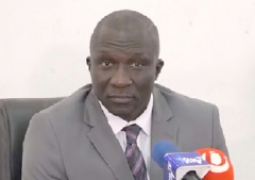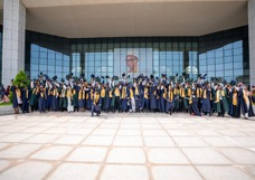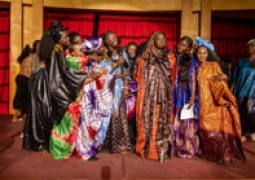
The National Nutrition Agency (NaNA), Directorate of Social Welfare and Department of Community Development is implementing the Nafa Program as part of The Gambia Social Safety Net Project (SSNP),which aims to strengthen the coordination of social assistance activities and increase the inclusion of the extremely poor in the Nafa Program.
The Nafa Program component of The Gambia Social Safety Net Project is sponsored to a tune of US$ 31 million. The project is jointly funded by the World Bank and Government of The Gambia.
The Nafa Program is a combination of Cash Transfer and Social and Behavioural Change Communication (SBCC) that is being implemented in phases.
The first phase involved three Districts (Foni Bintang in West Coast Region, Nianija in Central River Region and Wulli West in Upper River Region.) The project is now rolling out to 17 other districts across the country.
The project is targeting 15,606 extreme poor households which equates to approximately 40 percent of the extreme poor households in The Gambia. The project targets 20 poorest districts in The Gambia.
The Project Development Objective (PDO) is to improve the coordination of social assistance activities, provide temporary social assistance support to rural households in the wake of COVID-19, and increase inclusion of the extreme poor in the Nafa Program.
Briefing the media at Kanjabena in Foni Berefet, Oumie Touray of Department of Community Development, described the project as ‘very important’ to her department, adding that they did not encounter any challenges during the enrolment.
Ida Sanyang, a beneficiary at Kanjabena said the project would help extremely poor households move up the poverty line.
With the project, she expressed optimism that they would now be able to sustain themselves and support the education of their children.
She thus thanked funders and implementers.
Fatou Suso of Department of Community Development speaking at Luluchorr in Foni Kansala district expressed delight with the turnout of beneficiaries for the enrolment, informing that they also brought along their required documents.
Nuha Badjie, a beneficiary at Luluchorr said he would use part of the money to buy small ruminant to ensure he is able to sustain himself and his family when the project phases out.
He also said that he would also use part of the money to pay for his children’s education.
Haruna Badjie, Regional Social Welfare Officer at the Directorate of Social Welfare also speaking to reporters at Kanwally enrolment center in Foni Bondali, indicated that they did not encounter any major challenge.
“We are in the rainy season and it is not easy to get all beneficiaries in farming communities but appealed to them to cope with them for the enrolment.
Fatou Fatty of Directorate of Social Welfare at Sintet in Foni Jarrorl, said most the households are allowing women to be principal recipients.
She advised beneficiaries to invest part of the monies to ensure they are able to sustain themselves at the end of the project.
Read Other Articles In National News
Man remanded for allegedly pretending to exercise witchcraft
Dec 23, 2024, 10:46 AM




